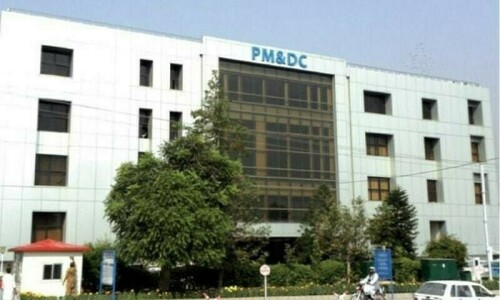ISLAMABAD, Sept 9: Despite adverse travel advisories by the West and law and order problems due the war on terror, foreigners continue to head towards this not-so-tourist-friendly country.
Nearly 900,000 foreigners came to Pakistan during the last 10 months. But tourism experts lamented that the number was far less given the potential in the country. Still, between July 2009 and May 2010, the tourists brought with them over $253 million in foreign exchange.
The foreigners visited major cities like Karachi, Rawalpindi and Islamabad, Lahore, Peshawar, Quetta, Swat, Muzaffarabad, Gilgit and Skardu.
Tourism inflow remained highest from the UK, as more than 270,000 tourists from that country visited Pakistan since Britain maintains the maximum business ties in the region. The next was US from where 108,786 visitors came. More than 48,100 Indians also visited Pakistan besides over 29,100 Chinese and 36,600 Iranians. India and China topped the list when it came to most tourists visiting Pakistan after relaxation in visa restrictions.
This, however, does not include 'visitors' who were catching connecting flights or airline crews, all staying less than 24 hours.
“Their number is not counted or recorded. It's a standard procedure world over,” said a tour expert, explaining that the United Nations World Tourism Organisation, to which Pakistan is a signatory, defined a tourist as any person with a foreign passport staying in another country for more than 24 hours and less than one year.
“A Pakistani with British or American passport is also a tourist in Pakistan,” said another tour expert elaborating how tourist traffic in the country was insignificant compared to Nepal, Sri Lanka, India and Iran.
According to the Ministry of Tourism, tourist traffic in this part of the world had increased after 9/11. International tourist arrivals were estimated to have grown by 7 percent in the first half of 2010, said a recent UNWTO report.
“There have been significant strategic movements - NGO workers, diplomats and expatriates - after Pakistan became a front line state,” said an official with the ministry.
However, leisure tourism in Pakistan remained in trouble and at its lowest. This is the tourism in the truest sense where foreigners select their destinations to enjoy scenic beauty, entertainment and sport events.
Leisure tourism never touched the 20 to 25 per cent mark like it should have been given the potential in Pakistan. It fluctuated between 11 to 14 per cent.
Among major reasons was infrastructure that a ministry official described as the biggest drawback.
“The Hinglog Mandir in Lasbela is believed to be the oldest architecture in the world. Besides bad roads, there are no facilities for tourists to stay. There are no restaurants, toilets or information centres and security arrangements are also poor,” lamented the official.
While some infrastructure improved, law and order worsened the matter for Pakistan. Tourism as a subject remained a lowest priority and the people, no matter how friendly and hospitable, were deficient in social temperament.
“Whatever damage visa restrictions could not do, negative travel advisories did, preventing tourist inflow from major tourism generating countries.”
By Jamal Shahid















































